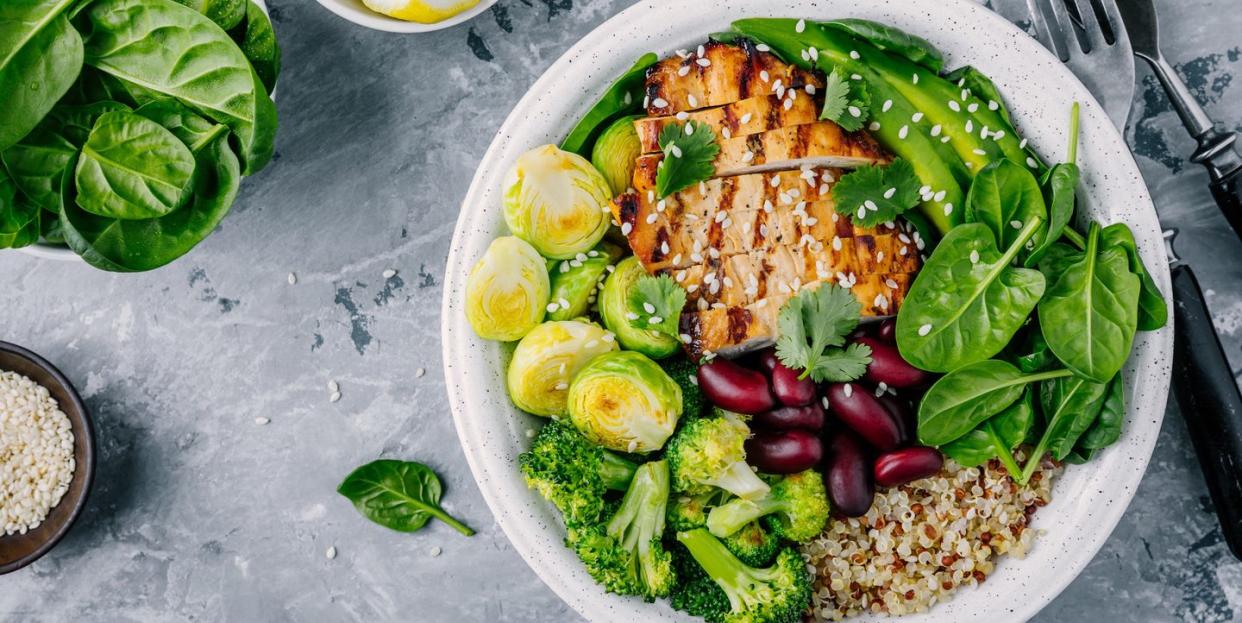This is where most people now source their nutrition advice from - but is it safe?

When it comes to healthy cooking, social media has long been abundant with recipe inspiration. But new research suggests that people are increasingly turning to online platforms - like Instagram, TikTok and YouTube - for nutritional advice.
A survey, by communications platform Sortlist, found that social media now outnumbered other traditional channels - like doctors and website search engines - as the main source of diet information. They discovered that more than 47.6 per cent of respondents learnt about healthy food in this way, compared to 21.6 per cent who approached a nutritionist directly.
So, is this trend a sign of progress or entry into dangerous territory of misinformation? After all, many qualified health professionals, including nutritionists, dietitians and doctors, now have a presence on social media and offer legitimate healthy eating advice online.
From ways to get more of your five-a-day into your meals to how to cut down on sugar, it is possible to find brilliant nuggets of information during your daily scroll. Here's what an expert believes you should consider as you digest handy tips gleaned from your feed...
Should you get advice on nutrition online?
Getting clued up on what to eat via social media sounds tempting - after all, it is free and easily accessible at the tap of a screen.
However, Marilia Chamon, registered nutritional therapist and gut health specialist and founder of Gutfulness Nutrition, offers some words of caution. ‘This advice is often generalised and not tailored to you as a specific individual,’ she explains. ‘If you are simply looking to learn more about health and nutrition it may be harmless, but if you are looking to improve specific health conditions or symptoms it can become a problem.’

What’s more, from the best carbs to the virtues of dairy, what constitutes a healthy meal is still an evolving topic. ‘There is a constant, ongoing debate about nutrition amongst health professionals and on many occasions you will find different types of advice depending on the qualification of the individual,’ notes Chamon. ‘This can be very confusing and leave people not knowing what is right and what is wrong.’
That’s not to say you should avoid health eating directions completely on social media. ‘There are excellent professionals offering valid advice on social media, but remember that information is not directed specifically to you,’ adds Chamon. ‘If you are in good health and curious, then it is a great place to learn, but if you are dealing with chronic symptoms, no amount of social media pointers will solve them - you must work with someone on a one-to-one basis to achieve long-term, effective relief.’
How to tell if you can trust an influencer?
Firstly, whether they are a nutritionist, dietitian or doctor, it should be possible to verify their credentials - which should indicate whether they have the correct expertise to be giving out health yeating advice. ‘Check their qualifications and whether they are registered with a governing body,’ recommends Chamon. This includes the likes of the British Association for Nutrition and Lifestyle Medicine, the British Dietetic Association and the General Medical Council's medical register.
Additionally, a good old Google search wouldn’t go amiss. ‘Have they been featured in reputable media outlets?’ notes Chamon. ‘Or do they just have a large social media following?’ If they also operate in-person in clinical practice then that can be another good sign.
You should also beware red flags with what you are being recommended by influencers - particularly if it sounds too good to be true or takes a one-size-fits-all approach. ‘In my opinion, anyone selling a quick fix deserves some questioning,’ says Chamon. ‘The same goes for professionals who strongly defend one type of diet over another - for example, "you must be vegan in order to be healthy". The role of a nutritionist is to understand each person’s bio-individuality - endorsing one eating regime as the solution to everyone’s health is not the right approach.’
Another warning sign is being told to cut out certain foods or entire food groups. 'Restrictive diets have a time and place if you are dealing with a specific health condition, for example if you have been diagnosed with irritable bowel syndrome (IBS) and are told to follow a low FODMAP diet,' notes Chamon. 'But they should never be long-term or done without professional guidance.'
And, if you're still unsure about what you're being told on social, it's always best to check first with a nutritionist, dietician or doctor IRL.
You Might Also Like

 Yahoo Movies
Yahoo Movies 
